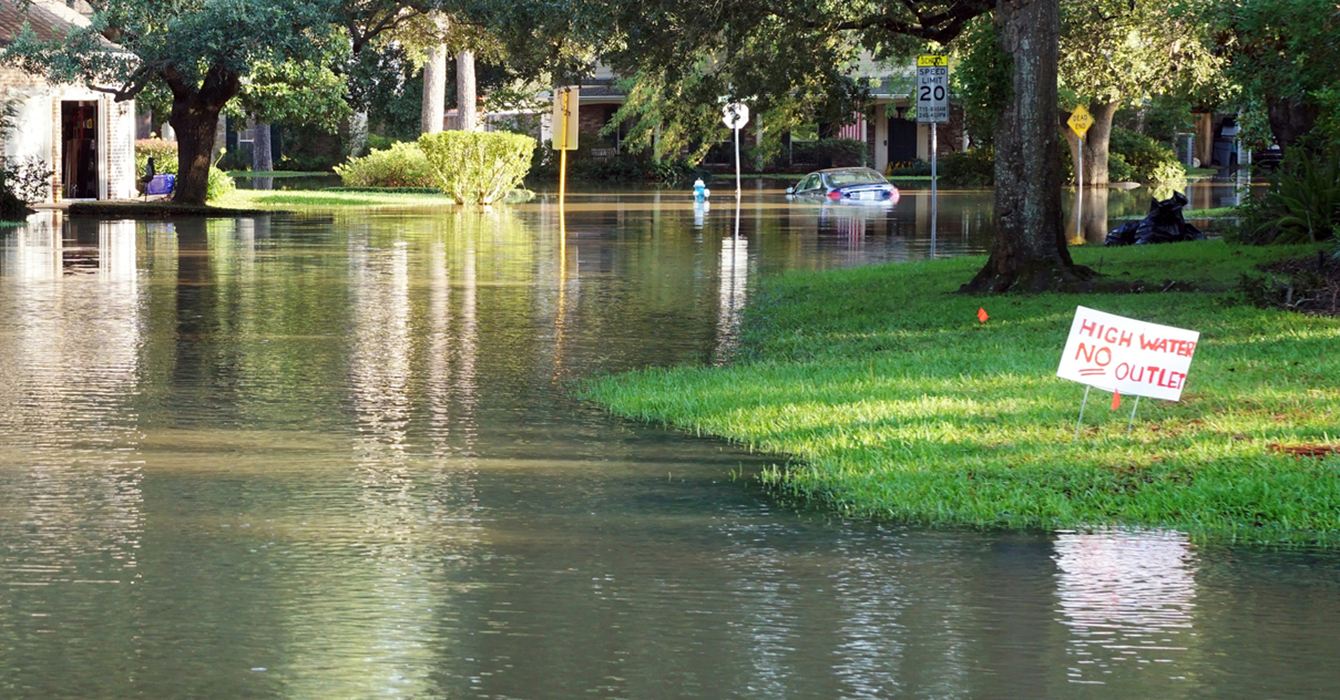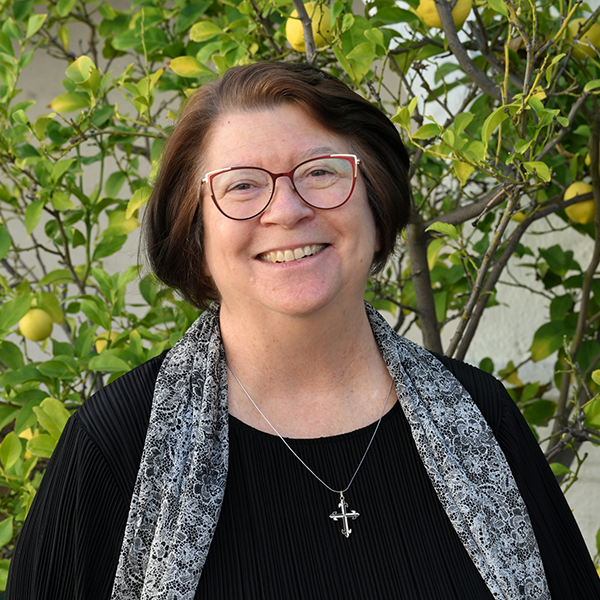Training a new generation of scholars while also teaching “lived theology” is a major challenge in today’s theological education, said Bonnie J. Miller-McLemore, the E. Rhodes and Leona B. Carpenter Professor of Pastoral Theology at the Divinity School and Graduate Department of Religion of Vanderbilt University.
“I think people today are more acutely aware of how relevant everyday religious practices are in forming theological assumptions among religious believers,” Miller-McLemore said.
 Ordained in the Christian Church (Disciples of Christ), she earned an M.A. and a Ph.D. at the University of Chicago. Her research is in religion, psychology, and culture; pastoral and practical theology; and women and childhood studies.
Ordained in the Christian Church (Disciples of Christ), she earned an M.A. and a Ph.D. at the University of Chicago. Her research is in religion, psychology, and culture; pastoral and practical theology; and women and childhood studies.
She is the author of numerous books, including “Christian Theology in Practice: Discovering a Discipline,” and is the editor of the Wiley-Blackwell Companion to Practical Theology.
Miller-McLemore spoke to Faith & Leadership about the increasing commitment to understanding lived theology as well as issues of gender and children in Christian life. The following is an edited transcript.
Q: Is there a disconnect between theology and what you once called “the thick, complicated realities and patterns of everyday bodily and communal practice”? Have things changed in the past few decades?
A lot of my work has been about giving more respect to the kind of theology that is operating outside the auspices of an academic institution. I wouldn’t want to romanticize congregations or ministers as being the “true theologians,” but I think there is a need to distribute value more widely across the spectrum of where theology happens.
If you go back and look in 1980s dictionaries like the Westminster Dictionary of Christian Theology and you look up “theology,” you will find definitions that are completely, entirely focused on cognitive beliefs. They’re about articulation of faith claims and refining of faith claims and debating and contesting and evaluating faith claims.
I think that was a pretty standard perception. It was easy for those trained to go into the ministry to carry with them that perception -- or misperception -- that theology is really something done in elite, intellectual circles.
Things have changed, so much so that I just was part of a dissertation defense earlier today that quoted [a systematic theologian] as saying that theology is all about what people do in practice.
I think there’s been a long-standing conviction that theology should be relevant, but actually trying to do that in both teaching and writing is a fresh pressure and commitment. Certainly, people like Paul Tillich were public theologians, and people were reading their sermons, and in some ways they were connected to churches and publics.
But I think people today are more acutely aware of how relevant everyday religious practices are in forming theological assumptions among religious believers.
Q: What are the implications for theological education?
I would say that things have changed, but maybe not as dramatically as one might hope. I think seminaries by and large are doing a better job than university divinity schools, partly because they are more proximate to religious congregations, and they are by nature more creative and imaginative and more interested in thinking integratively. They have to, because they’re pushed by the needs of their students in more acute ways.
I see some pretty interesting things happening in seminary education to break down the conventional boundaries between disciplines and between the academy and congregational life.
But there really still is, and probably always will be, some tension between the values and standards of academic scholarship and at the same time really responding to practical needs of religious communities and their leaders.
I think that’s probably been a several-centuries-old problem. It’s not a new problem of the varieties of knowledges and how they are related to each other. I think it’s still hard to teach toward practice, and there area lot of reasons for that.
There is a place for theorizing. The academy has to have a place. It’s just [a question of] how to keep a fluidity between it and the wider world of religious communities and practice.
Q: Could you offer an example of what you mean by “lived theology”?
People may not think about it this way, but when people make decisions about the distribution of household labor, it isn’t just a practical decision. It is a decision that has at least moral, if not religious, convictions.
We don’t think about these things as theological, but they’ve been formed by scriptural and theological traditions. So something obvious like male headship -- that was a theological conviction that was based on certain Scriptures, and to challenge it, you aren’t just challenging a question of political or personal preference.
You’re actually thinking about how do you imagine God, and how do you imagine humans in relationship to God.
I’ve become really interested in bodies and theological knowledge. So that has led me to think about how in our bodily actions in worship life we are actually proclaiming certain convictions theologically.
So, for example, I come from a free church tradition that does communion every week and have been participating lately in a very different tradition in an Episcopalian context that also does communion -- a liturgical church tradition that goes back to Catholicism.
And the ways of sharing communion bodily exemplify deep theological convictions about what the meaning of participating in that ritual is. Whether you process to the front and hold your hands out in front says something very different than if you distribute bread and grape juice in individual cups on trays and people serve each other.
Those practical, everyday actions were intended to carry significant meanings, and people don’t think about it. But it does shape how we understand ourselves and our relationship with divine presence.
Q: What are the lessons and challenges from The Program in Theology & Practice at Vanderbilt as a new model in doctoral education?
The program reflects the idea that if you’re going to enrich and enhance Christian communities, one area that is sometimes overlooked is graduate students and their own formation. So even identifying formation as an aspect of what’s happening for a graduate student is itself a bonus of the program.
Most graduate institutions are about formation of scholars and scholarship. We haven’t given that up; that’s still very much a piece. But we recognize that, not all, but a significant portion of our graduates go to theological schools and have to think toward, even at the beginning of their graduate program, about what is the aim, or telos, of their Ph.D. education.
Some of the programming actually grew out of interviewing faculty for our own divinity school and realizing that some doctoral graduates have really gained an incredible insight into a very narrow piece of scholarly knowledge but haven’t yet thought about its place in a broader seminary curriculum.
Probably one of the more interesting requirements is that Theology & Practice students don’t just do teaching assistance in their specialized areas of study. We have a second teaching assistantship that all students do that involves teaching at the intersections of the curriculum where we’re trying to form divinity students.
Supervising field education, overseeing the senior projects of the divinity students, going on global immersion trips -- this actually exposes people to the wider purposes of a divinity curriculum in the midst of their graduate study.
I think another of the more innovative pieces of the program is what we ended up calling a “teaching externship,” which is sort of like field ed for doctoral students. Students in their fifth year, after qualifying exams, teach in a divinity school or seminary one course a semester while completing their dissertation. They have the opportunity to begin the life of teaching without the tenure clock starting and with some mentorship.
[Another] required course is a research course where the hope is that students would engage a practical and theoretical issue in common and yet do research around it from their different disciplinary perspectives.
The idea is to get students already thinking about how they might bend their research toward broader public and practical issues, still owning their distinctive angle as a New Testament scholar, for example, or as a historian of Christianity.
They spend a lot more time than the typical graduate student with students in other areas of graduate education. Some of their closest colleagues are outside their technical doctoral area of study. New Testament scholars are talking to systematic theologians who are talking to ethicists.
There are some things that have been challenging for the Vanderbilt program. One is balancing the academic standards of scholarship with the broader aims of the program. I think that goes hand in hand with working across disciplines.
Q: I wanted to ask you about your other specialty. What are the key gender and family issues that affect the leaders of the church today?
I still think that a lot of the issues that I started looking at in the late ’80s, early ’90s are still pressing, and they are deeply theological issues.
Issues around gender disparity and domestic labor are still causing ripple effects in terms of adjudicating relationships, which are so important in communal life in a congregation. How we structure our family lives in terms of love and justice has deep theological roots in our understandings of human relationships and God’s relationship to us.
I would say that too about the inclusion of children and understanding children and what their religious needs and moral and spiritual capabilities are in congregational life. I think that issue is still pressing upon us, not to mention some of the public policy issues that churches bear some responsibility for in terms of children and poverty beyond the congregation itself.
Churches, by nature -- because we’re grounded in historical traditions that we want to preserve, both in terms of the doctrines and in terms of ritual practice in worship -- don’t change easily.
Churches are inevitably conserving institutions. Some of these issues press for new ways of looking at them, and it takes the church longer sometimes to determine what is just and right and loving. So that, I think, is an extra challenge that the church has. I certainly see that with gender justice. I also see that with sexual orientation.
Q: Do you see a connection between practical theology and your interest in women and childhood studies?
I’ve had a deep interest in trying to understand theology as it’s operating on the ground in people’s lives. I mean that in terms of doctrines and Scriptures and how they play out in everyday practice.
I think a second thing that’s been a connecting theme is a position of advocacy. I have a sense of wanting to democratize spirituality and theology for all people, valuing what’s already there that has been overlooked and not appreciated, both in the lives of adults that care for children and in the lives of ministers and congregations.





